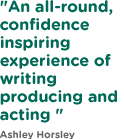
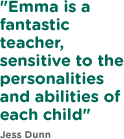

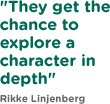
Dreamas in Schools
We come into schools one day a week, taking classes throughout the day.
We work with both teachers and children; and then write a play that suits the individual needs of the school, its staff and their pupils.
We then come back regularly to work on the play; ending up with an expert school production, with all the children inspired and involved in one way or another.
Alternatively, we can do an inset day providing class teachers with training in the format of the classes and how to run them in groups or with the whole class. This means that they can take control of their own school play. We can be called back in to re-focus at any time.
This is available for both primary and secondary schools.
Please contact us for more details.
More Information
As we all know, children learn best when they discover things for themselves; but with a large class, this is almost impossible to achieve for any sustained length of time, or for all of the children.
Dreamas drama allows every child to be involved in the writing of the play; and when they see it performed, their ideas made physical, they gain confidence in their own creativity.
In Literacy, one of the basic things to learn is a love of writing, to feel that you can do it yourself, to see the process and to understand the structure of a piece of writing.
Furthermore, by teaching children to speak well, they learn to write well too, particularly when they are creating the characters themselves.
Dreamas classes cover most areas of the literacy curriculum, helping you to cover government assessment guidelines (APP), including areas that children can have trouble learning in the usual classroom setting; specifically:
Reading: knowing the script is written for them, using their ideas, and then, that they can perform the script encourages understanding of the text, specifically through the natural discussion that ensues through working on the script for performance; this promotes a natural learning which covers:
- Reading for meaning. (AF1)
- Understanding the text, especially characters and main event. (AF2)
- Interpreting events from the text, ie, ‘why did the story end that way?’ (AF3)
- Structure, eg, ‘why does his scene come before mine?’ (AF4)
- Language: different for each character, their actions, and the setting. (AF5)
- Effect of the text on the audience becomes very clear when a script is performed. (AF6)
- Text may be related to different traditions: any number of cultural/historical slants can be put into the play script (AF7).
Writing: As well as learning how to use their own ideas and imagination in the writing of the script, children work with the script almost all the way through the rehearsal period.
They are asked specifically not to learn their lines until the end so that they can concentrate on their characterisation, and this comes entirely from working with the script.
This therefore covers many of the guidelines for writing targets:
AF1, AF2, AF3, which can be difficult for children to come to grips with unless they are completely involved in the writing; and then AF5, AF6, AF7, AF8, (sentence construction, punctuation, vocabulary, spelling) due to having close and sustained contact with the script, and having to interpret it for performance.
Drama in general is well known for boosting the confidence of children with learning difficulties, educational special needs, and English as an additional language, as it provides another form of self expression which, in turn, feeds back into mainstream education by making literacy fun. With the Dreamas format, every child can be involved, whether they are high achieving or struggling to understand.
The format of Dreamas is especially helpful for children with socialization and behaviour problems as they learn specifically about character, relationship, and working in groups. However, all the children involved are learning more about themselves and finding their place in the classroom and then in society.
Please Contact us for more details.

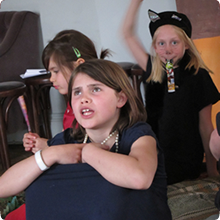
Imagination is the beginning of creation. You imagine what you desire; you will what you imagine; and at last you create what you will.
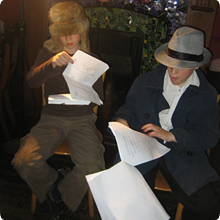
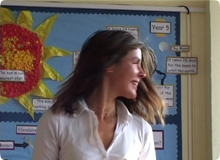
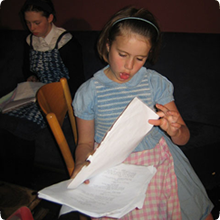
It is the supreme art of the teacher to awaken joy in creative expression and knowledge.


